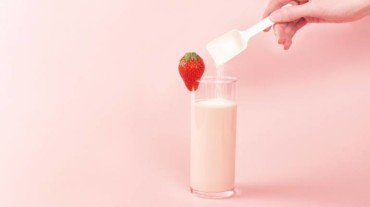
Meal replacement supplements (MRPs) have created a buzz in the market and claim to be a quick fix for weight loss. The term “meal replacement” refers to a calorie-controlled, pre-packaged product in the form of a bar or a drink (canned/bottled/powdered) that replaces a meal. However, the term supplements stand for food that is meant to supplement the normal diet not and not substitute it.
Meal replacement products generally provide around 200 to 400 calories per serving and are often fortified with more than 20 vitamins and minerals at “good” or “excellent source” levels. Meal replacers were earlier advised mainly for elderly or ill adults suffering from lack of appetite, difficulty in chewing and critically ill patients who suffered from nutritional deficiencies.
In modern times due to hectic schedules and lack of time to prepare home-cooked meals meal replacers have gained popularity amongst fit adults especially those attempting to lose or gain weight.
Also, Read: Forget protein supplements for weight loss. Try these protein laddus instead
What are the different types of meal replacers available?
1. Pure protein formulations (whey and casein)
2. Lean muscle gainer or high-carb weight gainers
3. Protein bars
4. Protein-enriched vitamins and mineral premix powders
What are the advantages of choosing meal replacement supplements?
1. Meal replacement supplements are fortified with all essential nutrients and so they help you cut down calories along with providing nutrients all in one meal.
2. They save time involved in cooking and are extremely portable and can be carried easily in small containers.
3. They can be ready to consume or mixed in milk/water as per convenience or consumed in the form of a bar and can be a quick fix to your mid meals or snack times where most people tend to cheat.
4. They may help in faster weight loss due to absolute controlled caloric control.

What are the long-term disadvantages of meal replacement supplements?
1. Some MRPs may contain unhealthy ingredients like added sugars, corn syrup, partially hydrogenated vegetable oils, artificial flavours, emulsifiers, and chemical preservatives.
2. Some may also contain more grams of sugar than the grams of protein & hence must be carefully chosen.
3. MRPs can’t be used on a long term basis and completely substitute food/ Also after attaining required weight loss when you switch back to a normal diet, the chances of you returning to your original weight or becoming heavier are high, because of a sudden to increase in caloric intake.
4. MRPs do contain fiber but the amount is lesser than what you could get through a healthy diet that has fruits and veggies. And this may lead to constipation.
5. A healthy meal contains antioxidants from plant compounds and enzymes that are difficult to package in a can or powder, especially vitamin C which is volatile in nature.
6. Long-term use of high protein supplements without consulting a qualified nutritionist may further load the kidney to excrete out the excess proteins and may be toxic.
Also, Read: A high-protein diet might help you lose weight, but it can also up your risk of heart attack
How can you choose the ideal meal replacement supplement for yourself?
The MRP should contain the following nutrients:
1. It must provide at least 15 to 20 grams of protein per serving
2. It must contain a minimum of five grams of fiber per serving
3. Sugar content should be less than 10 grams per serving
4. It should contain no corn syrup, added sugars, high fructose corn syrup, glucose, galactose, lactose, maltose, dextrose, and sugar alcohols.
5. It should not contain hydrogenated vegetable oils.
6. It must meet 33% of the daily value for vitamins and minerals
Select Topics of your interest and let us customize your feed.
PERSONALISE NOWAlso, Listen:
So, if you are able to consume a well balanced healthy diet comprising a good amount of grains, pulses, eggs, or meat and poultry, nuts and seeds, fruits and veggies–then you may not resort to using MRPs.
However, if that seems difficult to adhere to, then choose your meal replacement substitute wisely and do consult your physician before starting.